READY TO GET STARTED?
REQUEST A FREE ESTIMATE
Fill out the form below or call (888) 466-7849 for a free, no-obligation estimate.
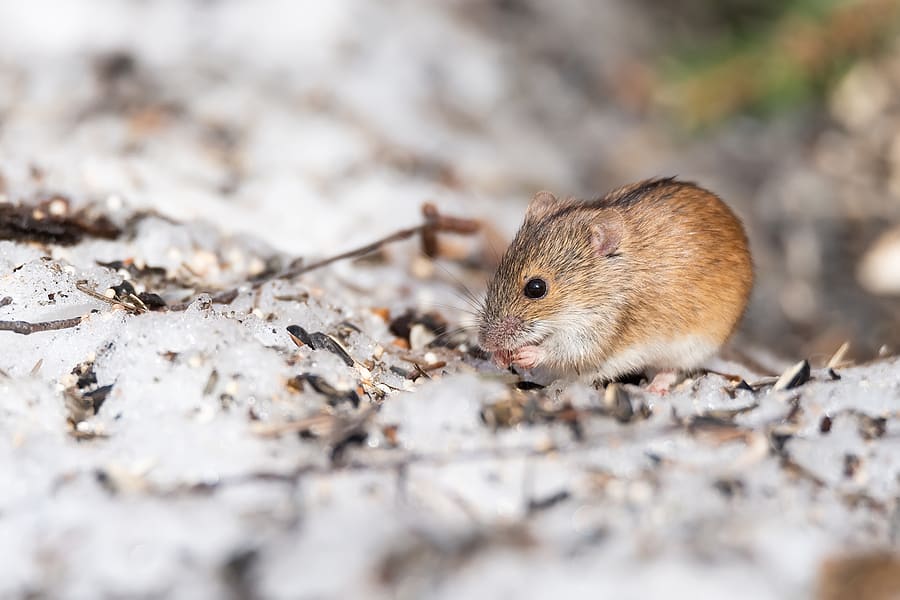
Contrary to popular belief, pests don’t just disappear when colder weather sets in. Overwintering pests are those that find a warm place to shelter during the winter, most often inside your home! Some household pests thrive year-round because the warmth, water, and food supply in your home allow them to survive even in the harshest weather conditions. Some common winter pests include rodents, roaches, spiders, and bed bugs. For this reason, it’s important that you don’t forget about winter pest control! Here are a few of our favorite winter pest control tips you can use to make your home pest-free.
What Causes A Termite Infestation?
Prevent Bed Bugs this Holiday Season
Where Do Rodents Go In Winter?
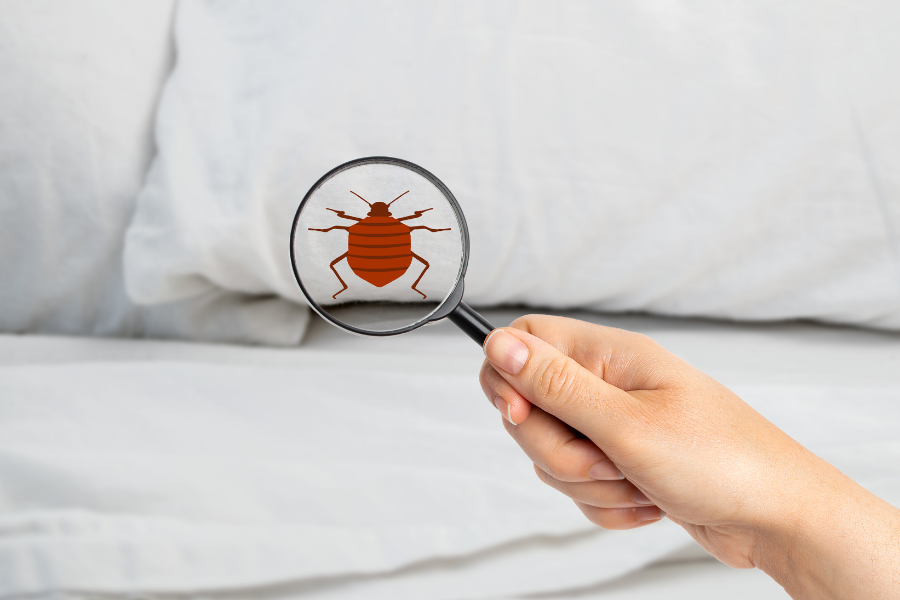
Typically, when temperatures begin to drop, that means many bugs go into a sort of hibernation mode. This isn’t necessarily the case for bed bugs. Being predominantly indoor pests, they tend to survive the colder months. It’s also a big time for them to spread because of all the holiday travels, so always be aware of any pests that could ruin your holiday fun.
There are many ways that bed bugs can spread from one location to another. They will climb into our belongings and can lay their eggs in them. We will then carry these items from a location of infestation to a new location. Even if your bags or items are left outside, it will take a while for them to be harmed by the cold, as they are more resilient to the cold than they are to the heat. And since they will be hiding in our items, they will be protected from the wind and cold air.
Here are some tips to follow while travelling, so you can prevent bed bugs from home with you.
If you believe you have picked up bed bugs while on your travels, be sure to call your local pest control company and they will be able to assist you with a customized plan of action.
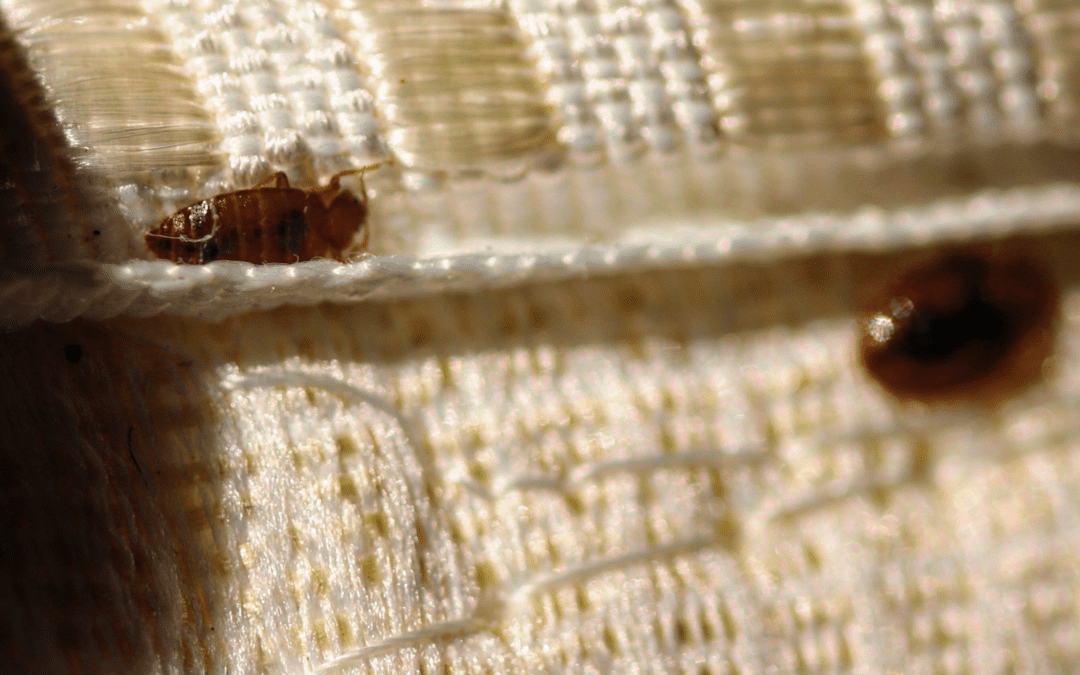
It’s time to unpack and get back to normal after all the summer vacations we were able to conquer. Hopefully, you came back to a stress-free situation that didn’t involve bed bugs; but if you weren’t one of the lucky ones, here are some tips to rid yourself of those unwanted pests.
Identify the pest to make sure it is indeed a bed bug. If you live in an apartment building, be sure to notify your landlord immediately, as they might have the responsibility of providing treatments. If you are in a single-family home, inspect all areas of your home to understand the extent of the infestation.
So, you have bed bugs, now what? Keep records throughout the whole process. Note dates and exact locations where these pests were found. This will help you track progress and to know where to target your removal efforts. You should be checking for at least a year after you’re done to make sure they are all gone.
Be sure to keep the infestation from spreading by implementing these tips:
Preparing for treatment is very important, whether treating bed bugs yourself or with professional help. If you plan on treating them yourself, ensure the methods you select are safe, effective, and legal. Avoid treatments that don’t work, like rubbing alcohol, kerosene, or gasoline, which are highly flammable. Sticky traps are also not effective in stopping bed bugs.
Some useful treatment solutions are:
The best solution for bed bugs is to contact your local pest control company. These professionals will have access to highly effective treatment methods. They will provide you with a bed bug control plan that is right for you and your property.
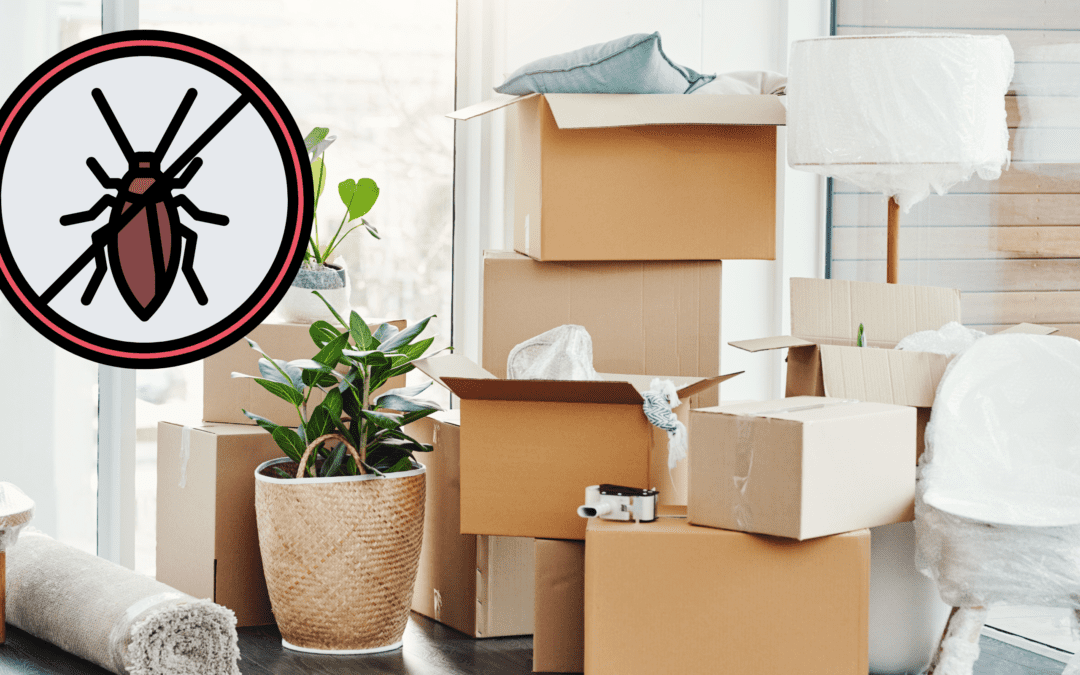
Packing is typically the most dreaded part when it comes to moving. Some popular pests that can be present at your current or new home include roaches, bed bugs, and fleas. It’s important to know how to avoid them when you’re moving out or in. Whether it’s a cockroach sneaking into your home, a bed bug hitchhiking from a recent hotel stay, or fleas leftover at your new home, we can help!
Discover how to avoid each pest and get rid of these unwanted roommates!
Cockroaches can be difficult to get rid of, so being adept at keeping them away is key. To prevent these nasty pests in your new home, thoroughly inspect all boxes before packing away your belongings. Once moved into your new home check the perimeter of your new house for small cracks and crevices and seal them off with caulk to keep the roaches from being able to enter.
Bed bugs are the type of pest that warrant a call to a pest control company. These invasive pests can be difficult to remove yourself, and you don’t want to wait for the removal process to start. If you need to stay in a hotel while moving be sure to inspect any furniture or bedding you sleep on or bring into your home. This means checking the bed frame, mattress, and even headboard for bed bugs or the telltale brownish-red spots they leave behind.
Fleas are normally looked at as a pet-based pest, but they can lay their eggs on the carpet and can remain dormant before you realize it’s too late. Consider your vet’s recommendation for flea control medication for your pet. At home, look to keep your carpet vacuumed regularly. If you see a flea, the best plan of action is to act immediately!
Remember these tips when it’s time to make the big move. If the problem becomes more than you can handle, be sure to reach out to your local pest control company to learn the best option in getting your new home back from these nasty roommates.
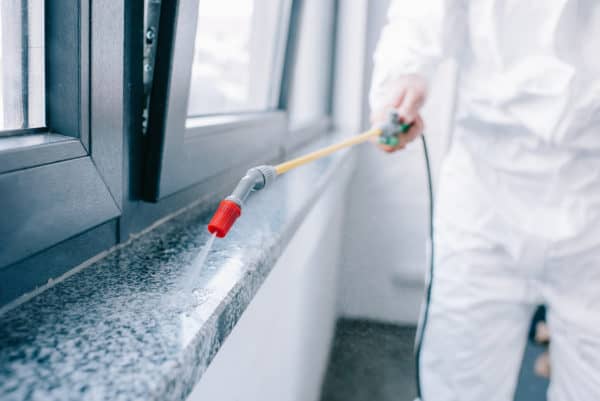
Spring marks the beginning of the season for many common household pests. Mice, ants, wasps, roaches, bed bugs, and more increase their activity when the weather warms up. While a pest sneaking into your home here and there is normal, how do you know when it’s time to call in the professionals? Here are 5 signs it may be time to call an exterminator.
A random pest sighting here and there in your home is normal. They can sneak in through open doors and windows or through the tiniest gaps and holes in the exterior of your home. They can also hitch a ride on luggage or boxes that are brought in from outside. There is a difference, however, between an occasional sighting and a daily presence. Seeing 2 to 3 ants in your kitchen once isn’t a big deal; seeing a trail of hundreds of ants going from the wall to the pantry is. Seeing one mouse outside in your yard isn’t a big deal; seeing multiple in your home, trapping several, or seeing the presence of droppings is. If the pest problem is escalating, it may be time for an exterminator.
Once you identify the pest problem, the next step is to try and get rid of them. Many homeowners prefer to try DIY pest control methods first before calling in a pro. If you continue to have a problem with pests despite your best efforts, it may be time to call an exterminator.
Pests can pose serious health risks to your family, your pets, and even your home. Termites can cause structural damage that can compromise the integrity of your house. Rodents are known to chew through electrical wires putting you at risk for a fire. Rodent feces contains harmful pathogens that can make your family sick. Cockroaches are known to trigger allergies and asthma. Some homeowners aren’t comfortable using DIY methods or have concerns about using over-the-counter chemicals around their children or pets. For these reasons, it may be time to call an exterminator.
Some pests are nearly impossible to eradicate on your own or require professionals to get rid of them. Bees are protected and must be relocated appropriately. Some bird species are protected, as well, and bird nest removal must be handled professionally. Roaches, termites, and bed bugs can be extremely difficult to eradicate on your own. If you have an issue with any of these pests, it may be time to call an exterminator.
When the signs of an infestation become too big to ignore, it may be time to call in a professional. Some common signs of pests in your home include:
If you have a problem with any kind of pest, contact a professional pest control company for an inspection to help identify what kind of pest you are dealing with, how they are getting in, and how to get rid of them quickly and safely.
Flowers and Plants That Attract Honeybees